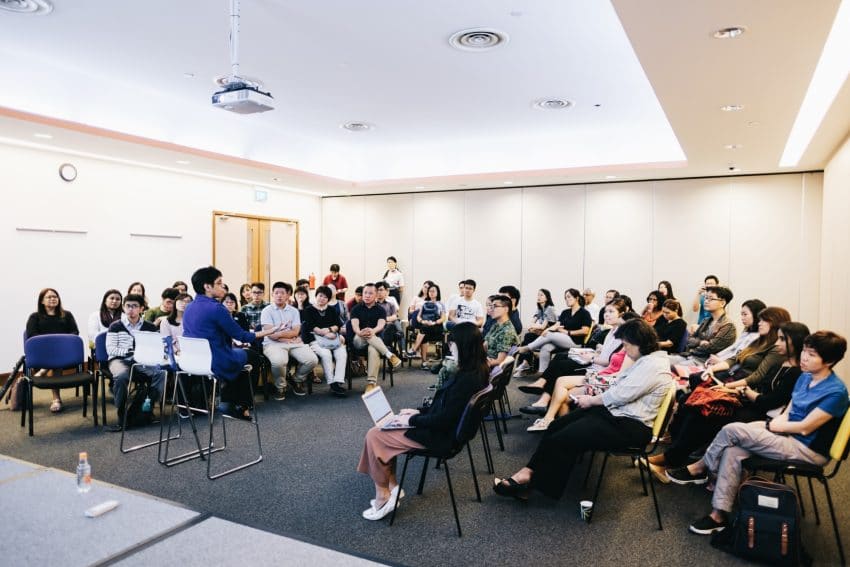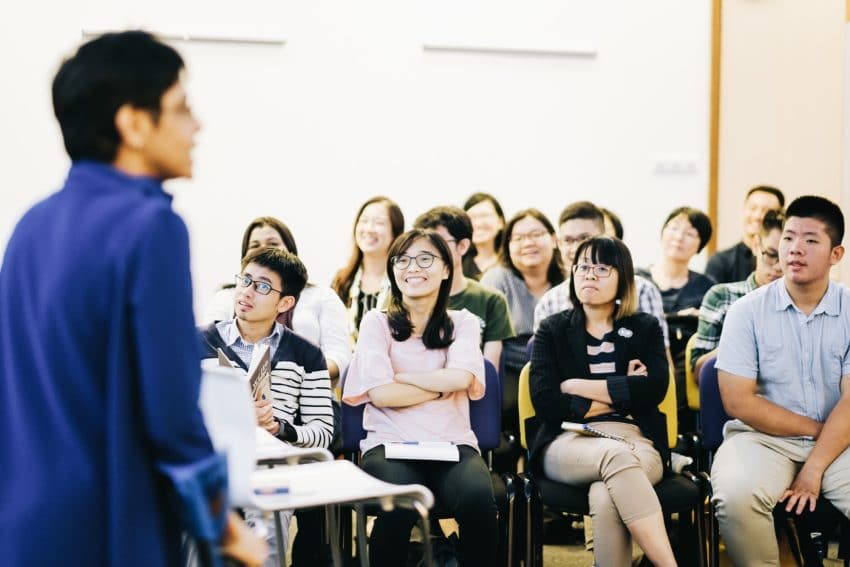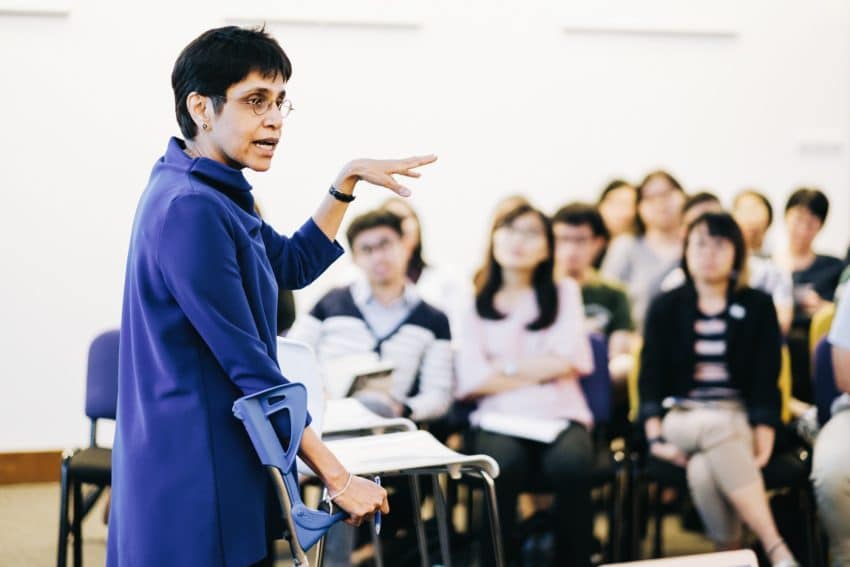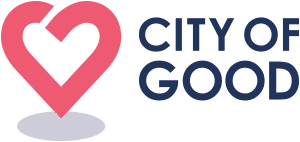It’s a community issue, and we can all choose to stay silent – or act to end abuse. We round up a recent NVPC Giving Matters conversation on family violence.
This article is written by our volunteer writer, Mona Thyagarajan, MSW.

Dr Sudha Nair, founder of Pave, at an NVPC Giving Matters conversation on family violence
Domestic violence is terrorism in the home.
Strong words, perhaps, but there’s no other way to describe the systematic use of physical and verbal violence against a family member, PAVE founder Dr Sudha Nair states. At a Giving Matters conversation, hosted by the NVPC in May, the veteran social worker spoke passionately about the impact of domestic violence on the survivors (not victims, note the difference), and the importance of intervening.
Domestic violence is not just domestic. Survivors and perpetrators are our neighbours, friends, parents, partners, and children. The problem belongs to the community as a whole. The hard truth is that, as members of the community, we are all participants in domestic violence. We can choose to stay silent or act.

But cultural norms may be to shy away from interfering or “being kaypoh” in people’s family issues. It’s not that Singaporeans don’t care – it’s that Singaporeans may not know what to do. There are inconveniences that come with being involved – having to give evidence, liaising with the police, the risks to one’s own safety, to name a few of the concerns raised during the discussion.
Dr Nair also spoke of the “bystander effect”, citing a famous case in which over 50 witnesses to a brutal assault did not take any action – because each of them assumed someone else would. The assault escalated and ended in tragedy. A preventable tragedy, had only one person had picked up the phone.
So, the issue is not whether to intervene, as that seems to be clear.
The issue, Dr Nair maintains, is how to intervene.

In a world of camera phones and recording devices, one common response is to record an incident and upload it on social media. But this does not actually protect the victim while the incident is happening, Dr Nair emphasised.
There are some things we can do to help:
- Listen for and be aware of sounds in the community, don’t turn a deaf ear or blind eye. Remember that violence and abuse are one instance where it is ok to be kaypoh
- If you witness or hear violence being committed, report it to the police, or call a family violence or child protection specialist centre
- You could also inform your Resident’s Committee. Grassroots leaders are closer to the ground, and can encourage the family to get help. Another option might be your MP, suggests Dr Nair
- Raise awareness about domestic violence resources in your area – helplines, family service centres, etc. When someone affected is ready to seek help, knowledge of who to turn to becomes immensely helpful
- Show kindness and be non-judgmental with survivors, as no-one can truly know what they went through and what it took for them to survive each day

In speaking of some of the worst cases of domestic violence she has handled, Dr Nair recalled one common thread that had made witnesses reluctant to get involved – the idea that intervening would break up a family.
But reporting may be the first step in bringing a family together: It gives the survivors a chance to heal and the perpetrators to get the help they need. As Dr Nair shares, many families continue to stay together after undergoing counselling – some become volunteers and serve as PAVE ambassadors.
Sometimes, being kaypoh may just save a family.
Sometimes, it may just save lives.
Family Violence Resources
Family Violence Specialist Centres
- PAVE
- TRANS SAFE Centre (Stop Abuse in Families)
- Care Corner Project StART
Child Protection Specialist Centres



















